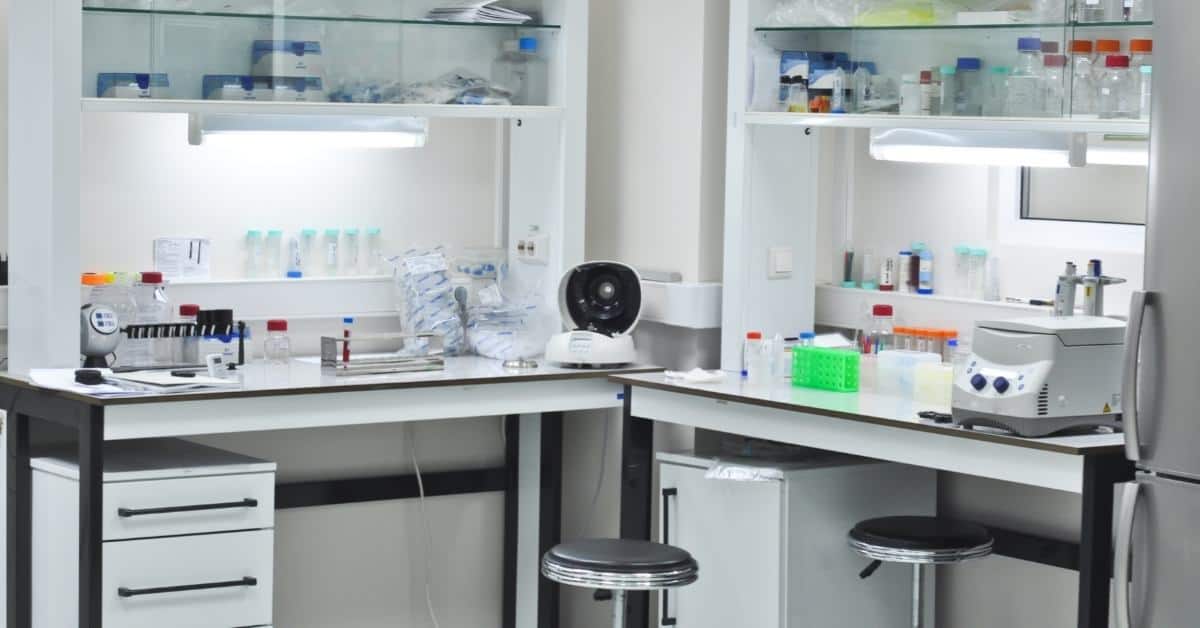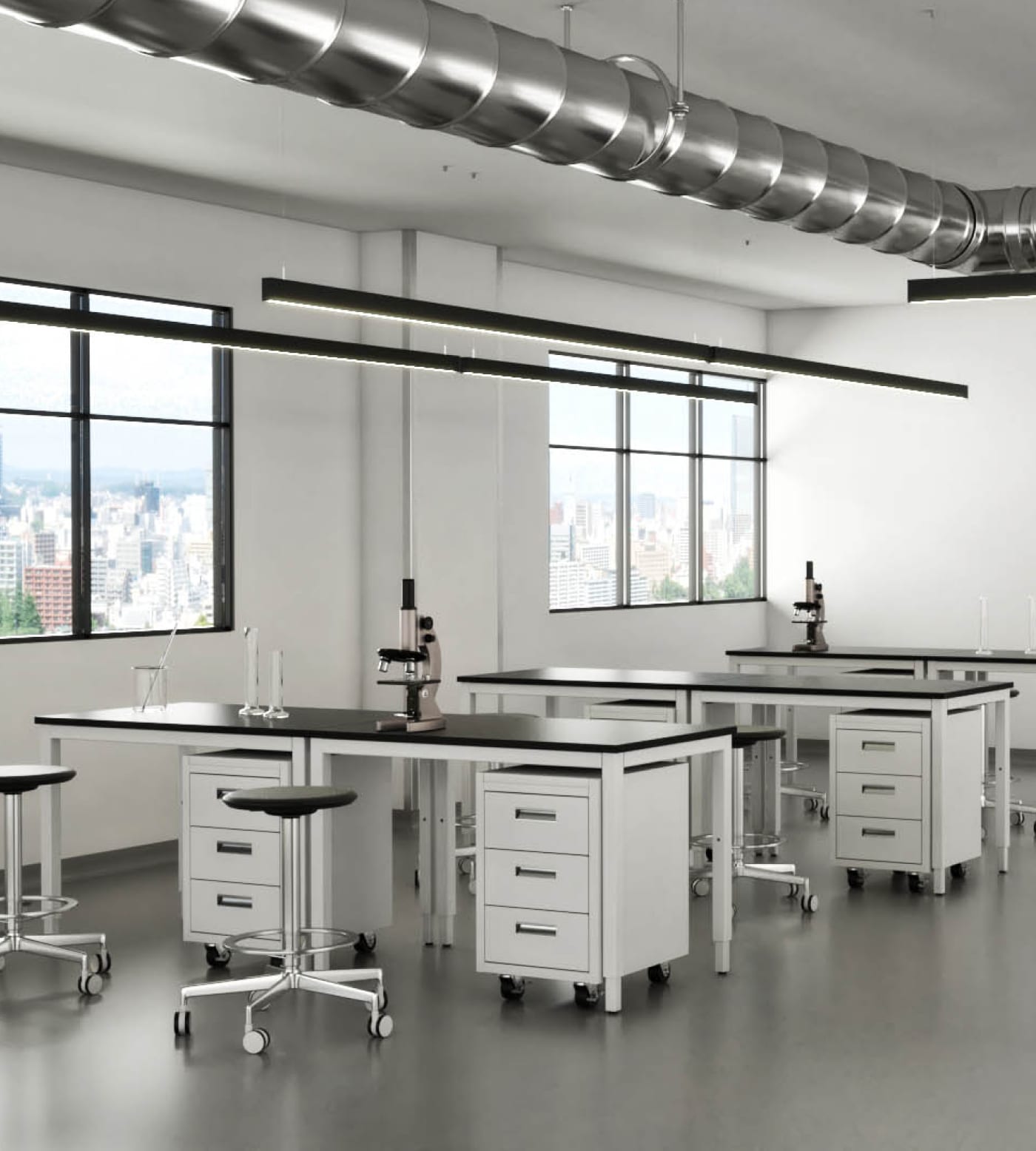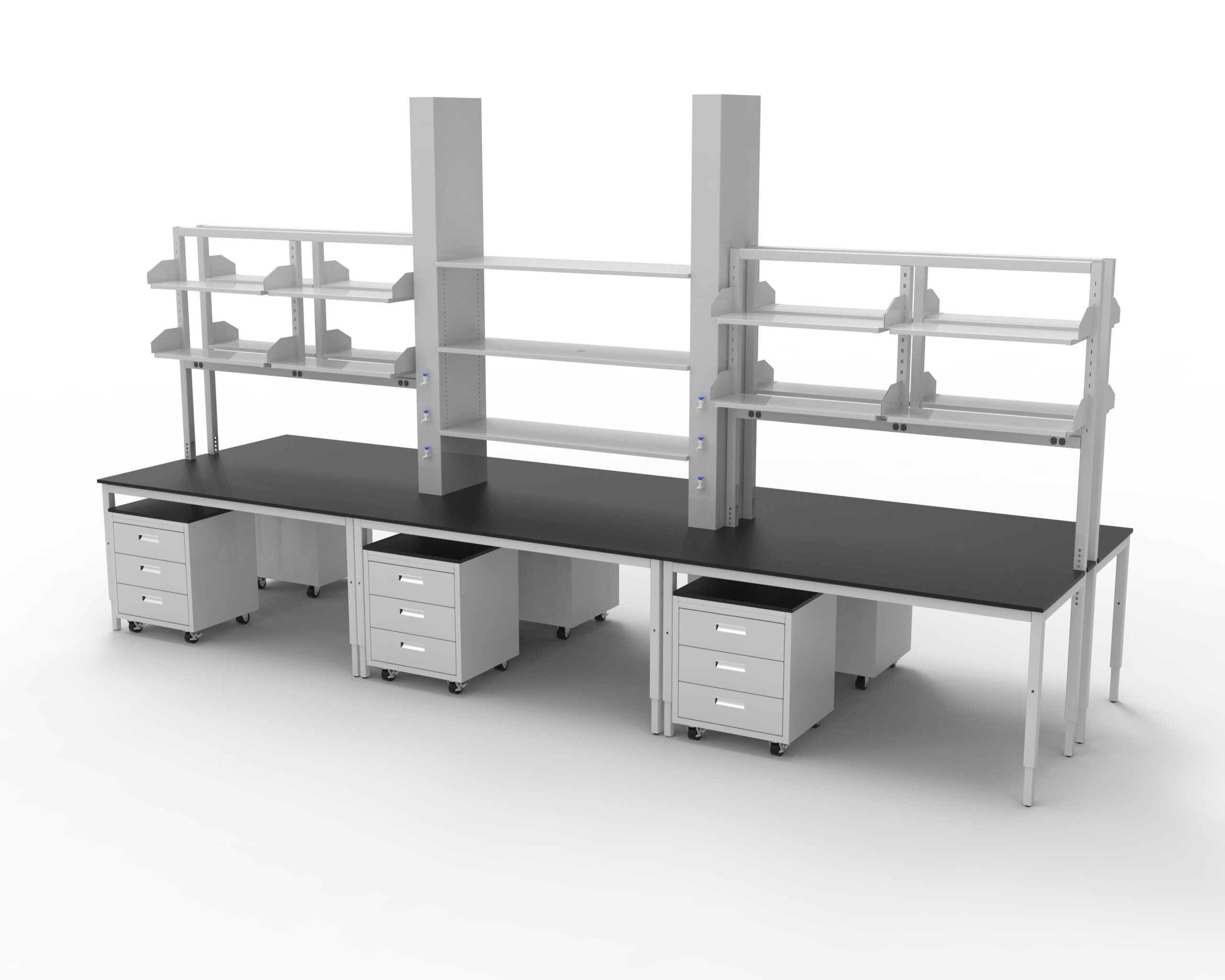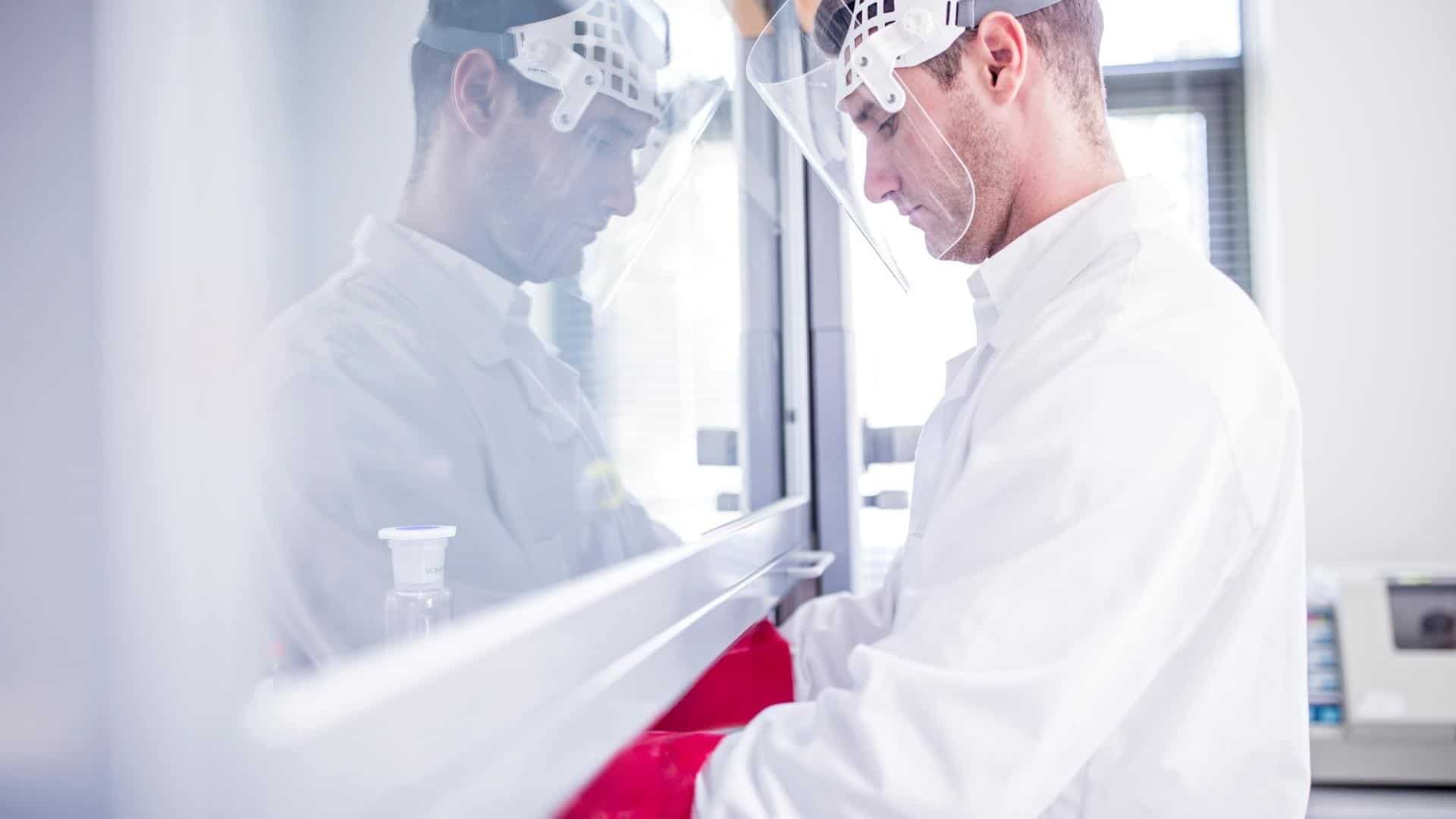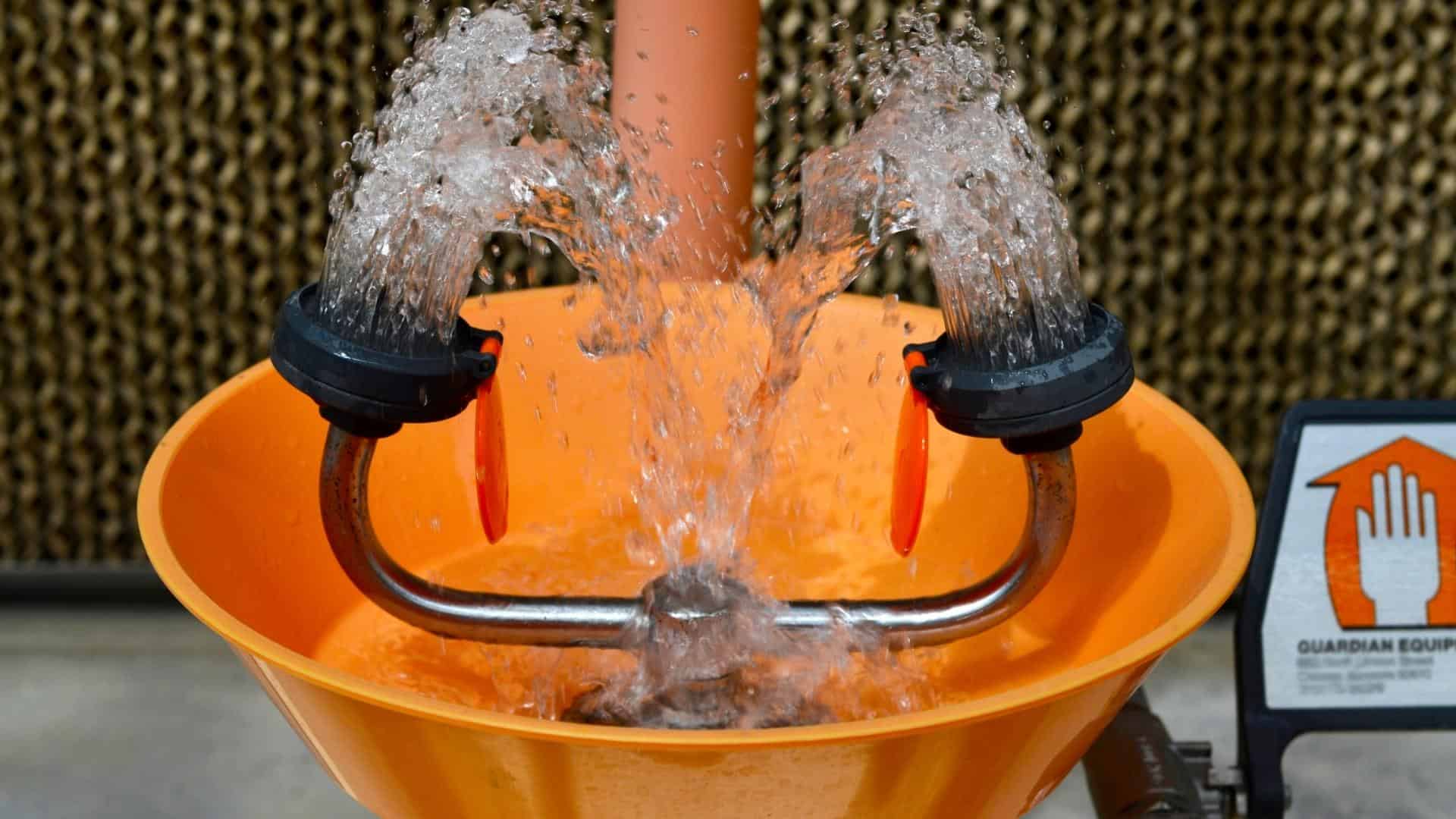Laboratory Design and Construction Tips
Designing a new laboratory is no easy task. Let’s take a look at some of the best practices to adhere to during laboratory design and construction.
Lab Design Best Practices
1. Balance Form with Function
Building a laboratory requires input from multiple perspectives. While laboratory managers may emphasize functionality, laboratory designers may tend toward more aesthetically pleasing choices.
It’s critical to balance both perspectives. Function is critical both for productivity as well as safety reasons. Aesthetic design also plays a role in creating a productive, efficient work environment. Make sure the various voices on your design team—designers, managers, administrators, and more—collaborate instead of compete.
2. Prioritize Safety
Make sure to look into all safety regulations and recommendations before breaking ground on your new laboratory. The Occupational Safety and Health Administration (OSHA) has storage requirements for various substances, such as flammable liquids and corrosive materials. Investigate relevant state regulations and local fire codes.
Plan to include safety equipment in your laboratory from the beginning, such as eyewash stations and emergency showers, even if the processes you intend to conduct in your new lab don’t require them. Laboratory purposes change. It’s better to have the safety equipment you may need from the beginning instead of adding it in later with extra cost and inconvenience.
3. Plan Laboratory Ventilation
If you’re planning to put a fume hood into your laboratory, ventilation should be a key consideration in your planning and design process.
First, determine how many fume hoods you need in your space. Too many fume hoods in a small laboratory can create ventilation problems. For small laboratories, one to three fume hoods is typically the maximum recommendation.
Next, consider placement. Never place a fume hood near a door. Drafts from opening and closing the door can affect the airflow within the fume hood.
Similarly, avoid placing the fume hood near main walkways. People walking back and forth in front of the fume hood can have the same effect.
Finally, plan the ductwork. If you’re planning to install ducted fume hoods, you’ll need to consider the necessary ductwork to connect the fume hood to the blower situated on top of the roof.
It’s important to ensure an appropriate rate of air being pulled out of the fume hood, typically measured in cubic feet per minute (CFM). Different types of ductwork can affect the CFM. To ensure your airflow is in the appropriate range, be sure to ask:
- How long is the ductwork?
- Are there bends or elbows in the ductwork?
- How many floors does the ductwork have to go through to reach the ceiling?
4. Consider Industry-Specific Recommendations & Requirements
Every lab is different. There may be requirements, regulations, or recommendations for designing a lab based on your industry. Common recommendations for various industries include:
- Educational labs: Demonstration fume hoods for teaching and multiple dedicated workstations for students
- Cannabis production labs: Benchtop or floor mounted fume hoods with explosion-proof lighting
- Medical research labs: Radioisotope fume hoods and distillation fume hoods
- Biology labs: Clear casework for displaying specimens
- Chemistry labs: Multiple ducted fume hoods for different chemical processes
Lab Construction Best Practices
Once you have designed your laboratory, it’s time to get started with construction and installation. Let’s take a look at some recommendations for laboratory construction.
1. Choose a Quality Manufacturer
Whether you need laboratory casework, accessories, or special equipment, such as fume hoods, it’s important to work with a quality manufacturer. At iQ Labs, we offer state-of-the-art laboratory equipment, casework, and accessories proven to last for decades.
Some manufacturers specialize in a specific piece of equipment for laboratories. However, it can be inconvenient to search for multiple manufacturing partners as you build your new lab. iQ Labs is proud to offer a wide variety of high-quality products so we can be a one-stop shop for laboratory designers.
2. Consider Customizations
Does your laboratory need custom-made equipment? Depending on what processes you intend to conduct in your fume hood, you may need stainless steel liners, corrosion-proof materials, or explosion-proof lighting. Some states, like California, require fume hoods to be fitted with sprinklers and a self-closing sash in the event of a fire—none of which you’ll typically find in a standard fume hood.
No matter the reason, customizations are an essential part of designing and building a laboratory. There is no one-size-fits-all approach to laboratory construction. At iQ Labs, we offer both aesthetic customizations, such as different colors for laboratory cabinets, as well as functional customizations, such as air velocity alarms and automatic sash closers.
3. Prioritize Specialty Equipment
Budgets aren’t infinite. While you may have a long wishlist for your laboratory, it’s important to know what to prioritize.
Our team of laboratory experts recommends prioritizing specialty equipment, such as fume hoods. High-quality fume hoods are an important investment because they ensure a safe working environment for the entire lab. They are also highly durable, often lasting for decades without the need for repair or replacement. Whether you’re purchasing fume hoods, flammable cabinets, or other specialty equipment, make sure you invest in quality craftsmanship.
4. Plan for Installation
Once you have purchased your equipment, casework, and accessories, it’s time for installation. Make sure you have a plan for:
- Who is going to install the equipment
- What needs to be installed first
- Where equipment and casework will be installed
Many laboratories prefer a DIY approach to laboratory installation. Our team is happy to ship our products directly to our customers so they can install them on their own. Customers can also hire installation teams if they would prefer help. Although our team does not do installations, we are happy to recommend trusted partners to our clients.
Laboratory Design Consultation
At iQ Labs, we’re happy to consult with clients on their laboratory design questions and construction plans. We’ll help you get set up with high-quality products for your new laboratory. Contact us today to get started.
